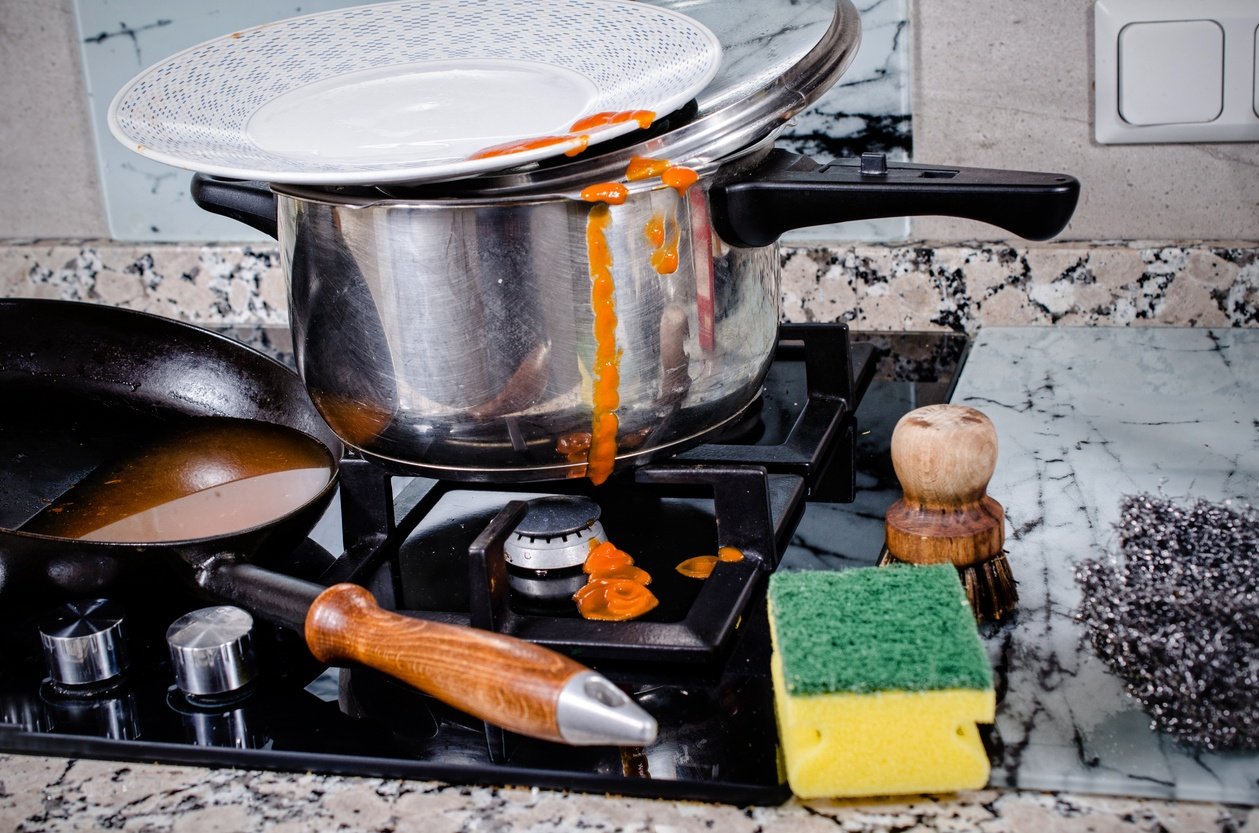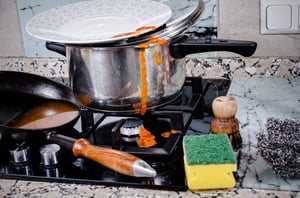Explore Springs Apartments


The dishwashers in our Springs luxury apartment homes are a wonderful convenience, but every now and then there's a pan or baking dish that needs a little bit of elbow grease. Save time and effort with our favorite tips for cleaning the greasiest, stickiest, most caked-on cookware stains.
Amazingly, plain old H2O can do most of the work removing burnt-on stains.
You may remember from high school chemistry class that oil and water don't mix. As a result, cooking oils can build up on pots and pans.
Sprinkle Bar Keeper's Friend or a similar commercial cleaning product on the baking sheet and scrub with a balled-up piece of aluminum foil. Be careful not to use this method on a baking sheet with a special coating.
Tea tree oil isn't just a multi-purpose health and beauty aid. Use a few drops of tea tree oil along with a few drops of dish detergent to remove a sticky film.
Cast iron skillets are old-school, but they're still highly valued for their safety, durability and adaptability. The downside is that conventional washing techniques destroy the features that make cast iron such a good cooking material.
Do you have a favorite cookware cleaning tip that we missed? Share it with us in the comments!
These Stories on tip
Take Comfort In Being Home
262-502-5500
We Your Pets
Privacy Policy | Cookie Policy | Terms of Use | Accessibility Statement
Owned and managed by Continental Properties, an award-winning corporate leader and developer of apartment communities nationwide. Copyright © 2026 Springs Apartments